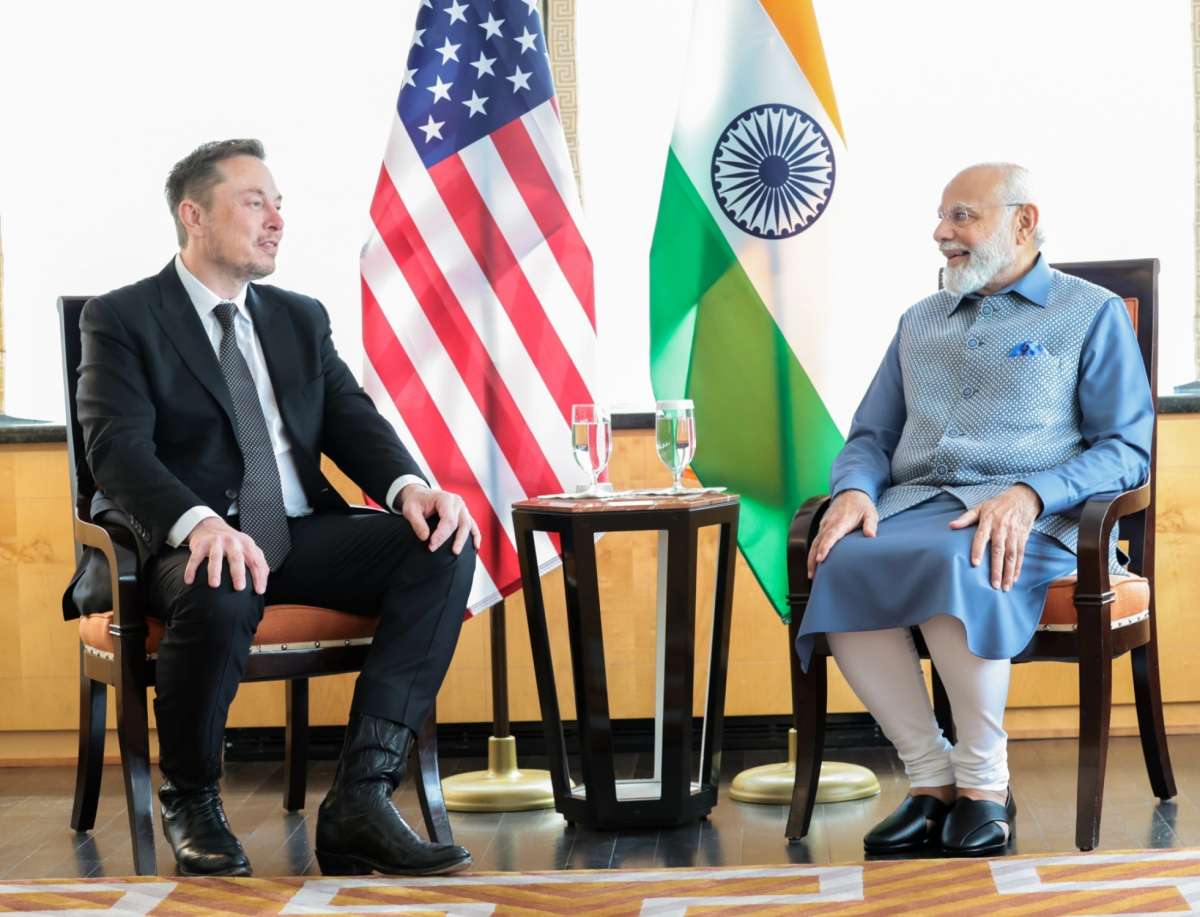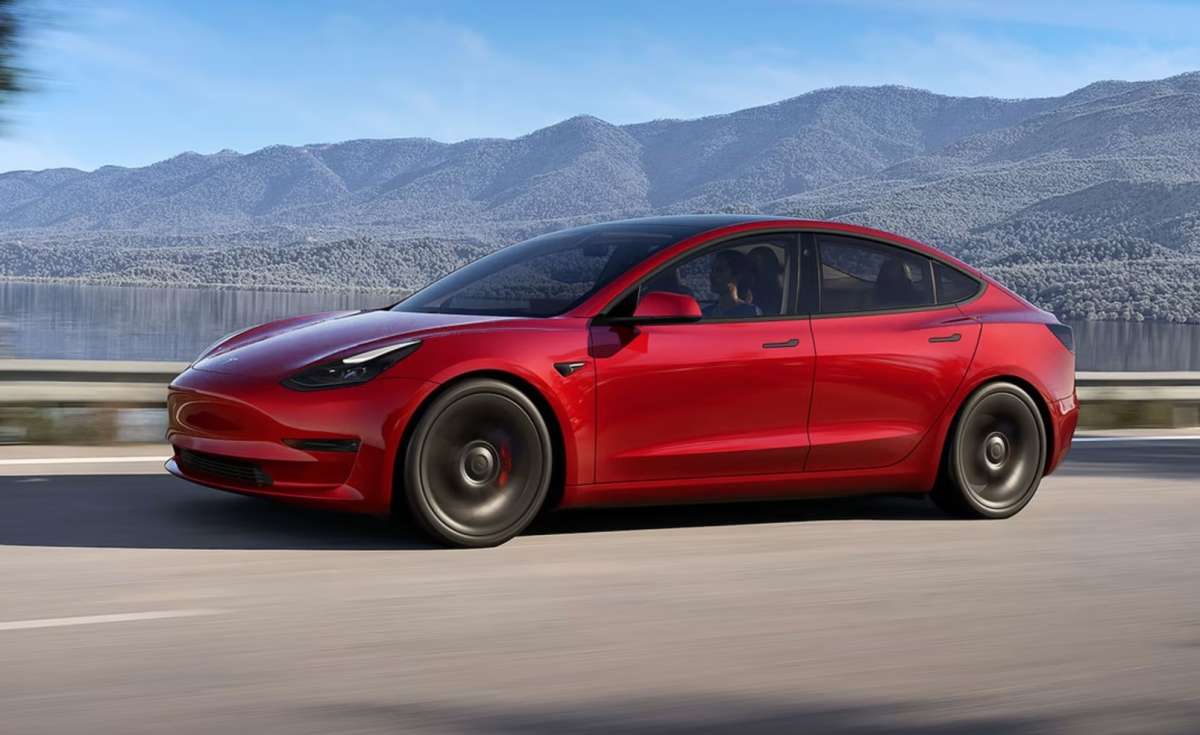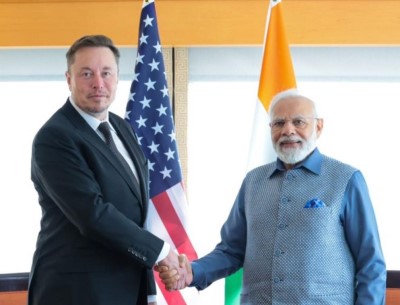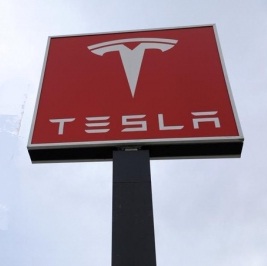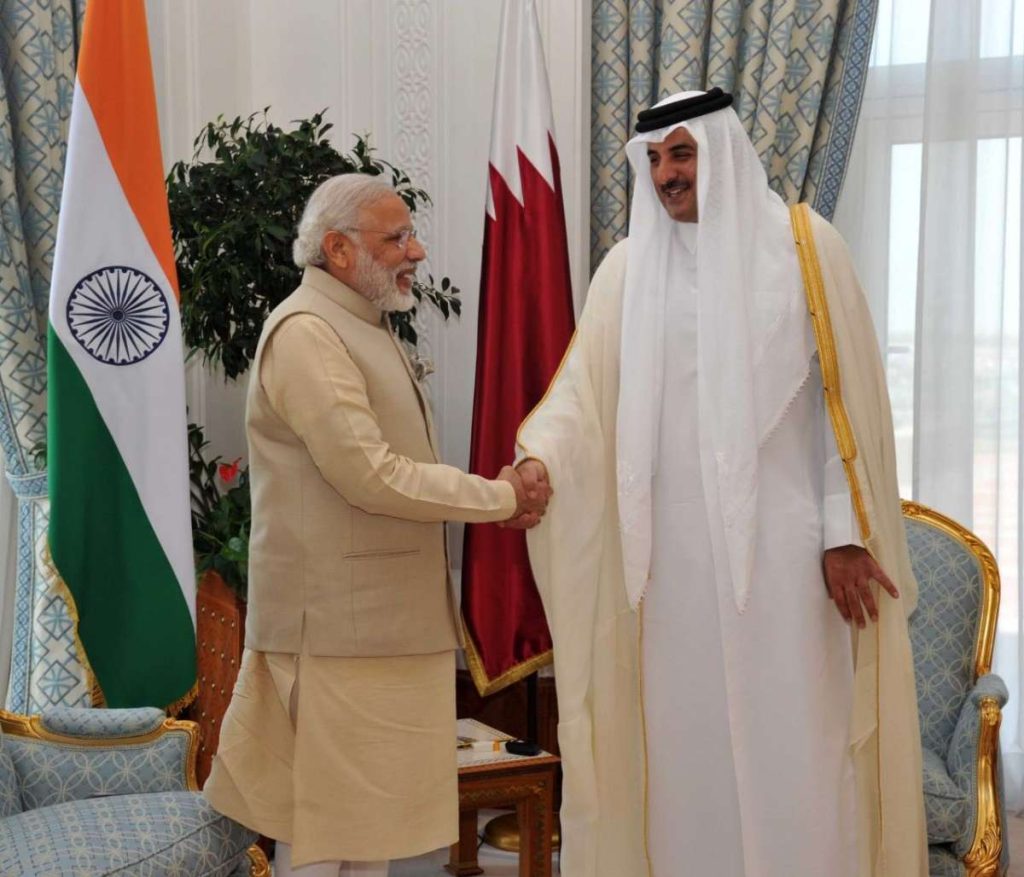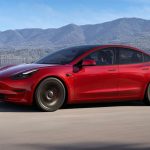With its strategic location and favourable business environment, Gujarat has emerged as the “preferred destination for Tesla’s manufacturing plans”….reports Asian Lite News
Elon Musk’s Tesla may finally end its dry run in India and announce to set up an Electric Vehicle (EV) supply system manufacturing plant in Gujarat during the ‘Vibrant Gujarat Global Summit’ next month. The announcement is likely to be made in the presence of Tesla CEO and Prime Minister Narendra Modi at the flagship event from January 10-12, according to media reports.
With its strategic location and favourable business environment, Gujarat has emerged as the “preferred destination for Tesla’s manufacturing plans”.
According to Ahmedabad Mirror, the state government has suggested Sanand, Becharaji and Dholera as the site for Tesla to set up its manufacturing plant.
Earlier, Gujarat, Maharashtra and Tamil Nadu were being considered by Tesla to set up its EV plant.
Tesla has been engaged in intense negotiations with the Union Government, seeking concessions that would facilitate a smoother entry into the Indian market.
Union Commerce Minister Piyush Goyal in November visited Tesla’s state-of-the-art manufacturing facility in Fremont, California.
Goyal said it was “extremely delighted to see talented Indian engineers and finance professionals working at senior positions and contributing to Tesla’s remarkable journey to transform mobility”.
“Also proud to see the growing importance of auto component suppliers from India in the Tesla EV supply chain. It is on its way to double its components imports from India. Missed Elon Musk’s magnetic presence and I wish him a speedy recovery,” the Union Minister posted on X.
Musk, had apologised to Goyal for not being able to meet him as he was keeping unwell.
“It was an honour to have you visit Tesla! My apologies for not being able to travel to California today, but I look forward to meeting at a future date,” Musk replied.
Goyal and Musk were scheduled to meet during the Minister’s US visit, after the SpaceX and X owner met Prime Minister Narendra Modi in the US in June, and revealed he was keen to make significant investments in India.
According to earlier reports, the automaker asked the Indian Government for an initial tariff concession that would offset India’s steep customs duties of 70 per cent for cars under $40,000 and 100 per cent for cars above $40,000.
Tesla had asked for the concession as a condition for constructing a plant in the country. The reduced tariffs would apply to all EV manufacturers.
India’s EV market has the potential to achieve over 40 per cent penetration with $100 billion revenue by 2030.
This growth is expected to be driven by strong adoption (over 45 per cent) in both two-wheeler (2W) and three-wheeler (3W) categories, with four-wheelers (cars) penetration projected to grow to more than 20 per cent, according to a recent report by Bain & Company and Blume Ventures.
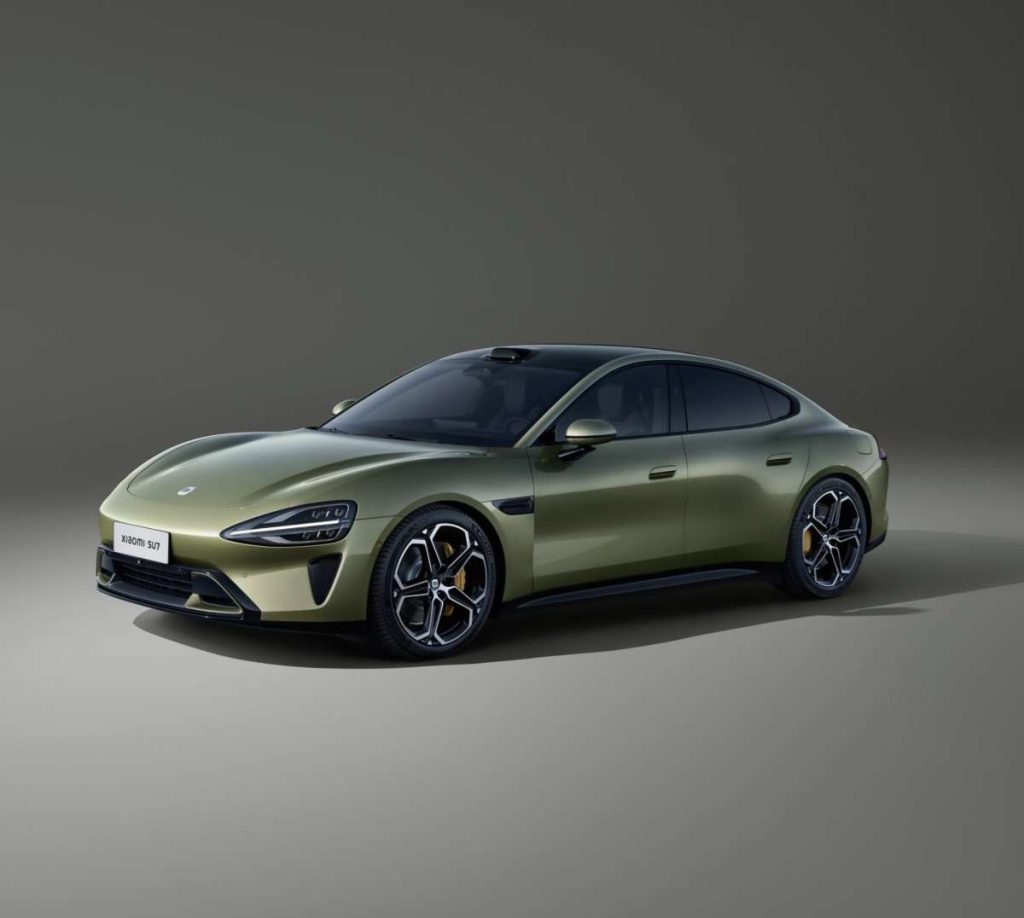
Xiaomi Enters Auto Sector, Unveils 1st EV
Global technology brand Xiaomi on Thursday announced its entry into the automotive industry by unveiling its long-awaited first electric vehicle.
The company launched two EVs — XiaomiSU7 and XiaomiSU7Max.
“#XiaomiSU7 makes a significant Stride as Xiaomi expands from the smartphone industry to the automotive sector, completing the Human x Car x Home smart ecosystem,” the company posted on X.
“#XiaomiSU7 will forever journey alongside those steering toward their dreams,” it added.
According to the company, the XiaomiSU7Max goes from 0-100km/h in 2.78 seconds, while the XiaomiSU7 reaches 0-100km/h in 5.28 seconds. The top speed of the SU7 is 210km/h and for the SU7Max, it is 265km/h.
“#XiaomiSU7 goes from 0-100km/h in 2.78 seconds, officially joining the ‘2s Supercar Club’ with a single step,” the company wrote.
Moreover, the company said that the new EV will be available in three colour variants — Aqua Blue, Mineral Gray, and Verdant Green.
The five core technologies used in EVs are E-Motors, battery, HyperCasting, autonomous driving, and smart cabin.
While the price of the EV is unknown, many expect the SU7 to fall into 200,000 yuan to 300,000 yuan (around Rs 25 to 35 lakh).
The sale of the SU7 is likely to start next year. It will be produced by a unit of China-owned automaker BAIC Group in a Beijing factory with an annual capacity of 2,00,000 vehicles.
ALSO READ: Delhi Tops Paytm Night Payments

